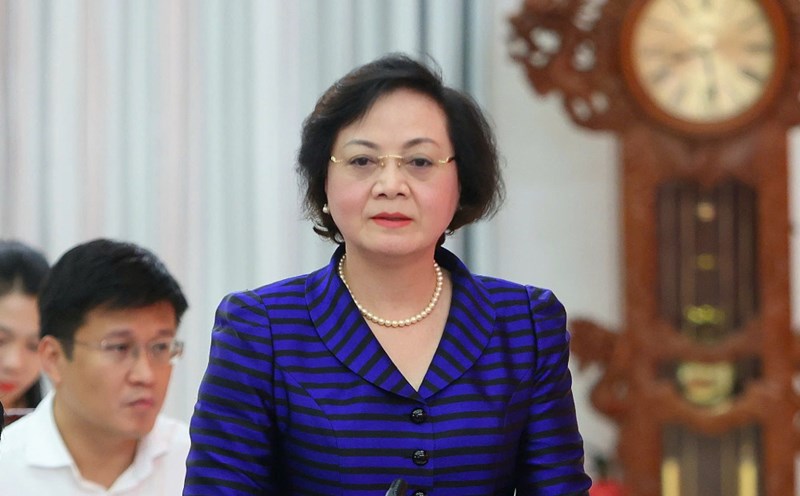On July 13, at a conference on the implementation of the two-level local government model, Minister of Home Affairs Pham Thi Thanh Tra mentioned the organization of decentralization and delegation of power between the central and local governments, as well as within each province.
The commander of the internal affairs sector said that some localities still lack proactiveness in receiving assigned tasks and authority.
The Minister emphasized the need to closely follow the motto "locality decides, locality does, locality is responsible", boldly proposing to the central government to decentralize if conditions are met.
Another problem is inadequacies in the operation of public administrative service centers, due to limitations in technical infrastructure. The lack of synchronization between localities, between provincial and commune levels makes it difficult for many places to deploy electronic systems, leading to network congestion, slow processing, and even having to return to manual operations.
frankly acknowledging this as the biggest bottleneck at present, the Minister of Home Affairs said that he would recommend the Prime Minister to comprehensively review the technical infrastructure system from the central to the commune level, to build a synchronous, effective and seamless connecting axis.
Another problem is that the team of commune-level cadres after the merger still lacks clarity in functions, tasks and job positions, causing confusion in performing public duties.
Although the Ministry of Home Affairs has issued a "Commune-level Government Handbook" integrating related legal documents, according to the Minister, it is still necessary to continue to organize specialized training and coaching so that cadres can clearly understand and perform their public duties in accordance with regulations.
In addition, Chairmen of People's Committees at all levels need to promptly issue regulations on the functions, tasks, and powers of specialized agencies.
The Ministry of Home Affairs is also coordinating with many ministries and branches to complete guiding circulars, creating a solid legal basis for the new organizational apparatus.
For public service units at the commune level such as health and education, the Minister suggested that ministries and branches review relevant regulations to ensure consistency with the Law on Organization of Local Government - one of the basic laws of the administrative system.
In particular, it is necessary to resolutely assign the responsibility for recruiting, using and managing civil servants to the commune level if they have been decentralized according to the law.
"As a commune-level public service unit, the commune level is responsible for reviewing, arranging, recruiting, appointing, and managing according to regulations," said the Minister.
For the team of non-professional cadres or those who retire at will, Minister Pham Thi Thanh Tra suggested that localities strictly implement the provisions in Decrees 178, 167 and 154.
At the same time, there should be appropriate policies to retain and promote capable cadres to meet the requirements in the new context.
Minister Pham Thi Thanh Tra also said that the Ministry of Home Affairs is focusing on perfecting the system of decrees and circulars guiding the organization of the apparatus, job positions and civil servant structure to facilitate localities in arranging personnel and allocating staff.
"Currently, we have not specifically regulated the payroll and job positions to facilitate localities in operating the new model. After that, based on the functions, tasks, population size and job position, the Ministry will hand over the payroll from 2026, the Minister informed.











